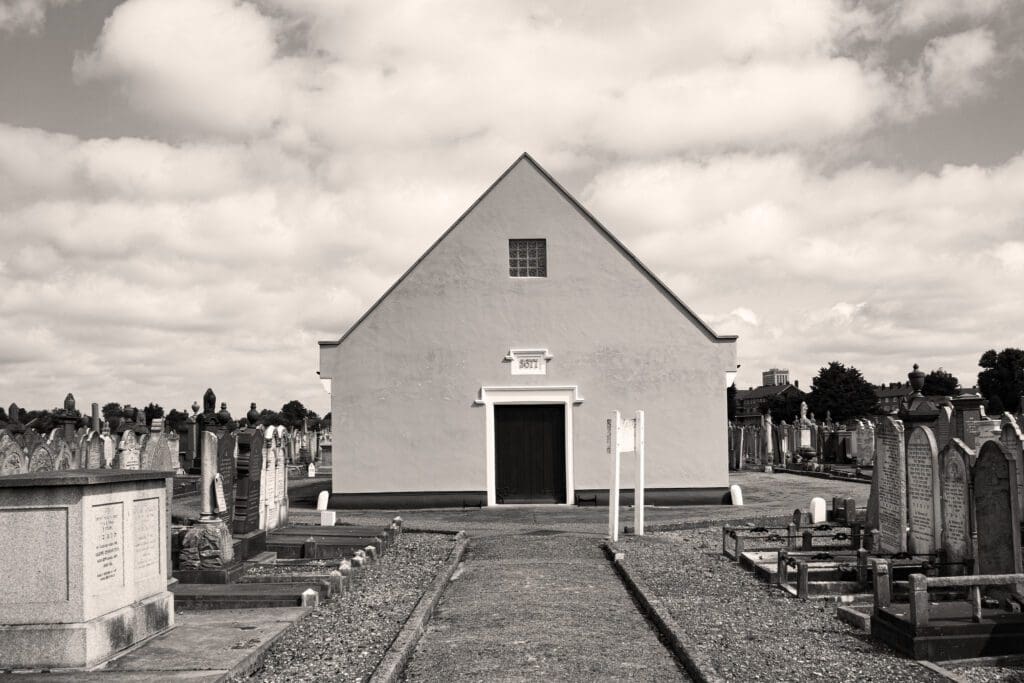Danielle Shi, Intern: Nobuhiko Obayashi’s 1977 film Hausu at first may seem like a comedy, as we witness scene after scene of innocent Japanese schoolgirls cavorting with nigh-homoerotic glee in the rolling countryside—until the haunted house they are staying in begins to kill them off, one by one. Think grand pianos chewing up fingers, tidal waves of blood to rival The Shining, and one particularly diabolical housecat that will leave you eying your own feline companion with (most likely) undeserved suspicion. Embodied in hallucinogenic animated sequences, cheesy and over-the-top special FX, and catchy musical numbers that repeat with a maddening […]
Tag: Peter Orner
The Murmuring Killed Me
by Peter Orner

Every few years or so I go to visit my dead at Beth El Cemetery in Fall River, Massachusetts. It’s across the street from a Cumberland Farms. My grandfather always said that being dead didn’t seem so bad if he could run over and grab a pack of cigarettes and the Fall River Herald. On
[…]
ZYZZYVA Interview Series: Peter Orner
by Oscar Villalon
Chicago-born Peter Orner is a Professor of English and Creative Writing at Dartmouth College. Peter is the author of two novels published by Little, Brown: The Second Coming of Mavala Shikongo (2006) and Love and Shame and Love (2010), and two story collections also published by Little, Brown: Esther Stories (2001, 2013 with new foreword by Marilynne Robinson) and Last Car Over the Sagamore Bridge (2013). His essay collection/memoir, Am I Alone Here?: Notes on Reading to Live and Living to Read (Catapult, 2016) was a finalist for the National Book Critics Circle Award. His work has been translated into French, […]
Q&A with Peter Orner: ‘Maggie Brown & Others’ and Real Life as Fiction
by Paul Wilner
In an age of instant reactions and hair-trigger controversy, Peter Orner is a writer who slows things down, living up to Susan Sontag’s admonition that “the writer’s first job is not to have opinions but to tell the truth…and refuse to be an accomplice of lies and misinformation.’’ Born in Chicago, he graduated from the University of Michigan and the University of Iowa Writer’s Workshop. A former professor and department chair at San Francisco State University, he is now a Professor of English and Creative Writing at Dartmouth. Orner’s eclectic body of work includes the novels The Second Coming of […]
‘Pain and Loneliness in Equal Measure’: Q&A with Peter Orner
by Will Howard
Peter Orner’s Am I Alone Here? Notes on Living to Read and Reading to Live (316 pages, Catapult)—which concerns Orner’s favorite stories, the lives of their authors as well as Orner’s own—has a modest subtitle. It suggests the essays in the collection, which was recently named a finalist for a National Book Critics Circle Award, are rough, unfinished. (One of the essays in the collection, “Since the Beginning of Time,” appeared in ZYZZYVA No. 107.) Because Orner maintains this Midwestern-like self-deprecating tone throughout the book, his intellectual rigor might catch you off guard. He takes stories—telling them, reading them—very seriously. […]
More ZYZZYVA in the Best American Short Stories and Best American Essays 2013
by editor
We announced here earlier in the year the inclusion of two ZYZZYVA pieces in the forthcoming Best American Essays and Best American Short Stories: respectively, Dagoberto Gilb‘s “A Little Bit of Fun Before He Died” (Issue No. 95, Fall 2012) and Karl Taro Greenfeld‘s “Horned Men” (also Issue No. 95). Today we learned ZYZZYVA made the Notable lists for both prestigious anthologies, too. Ron Carlson‘s story “Line From a Movie” (Issue No. 96, Winter 2012) won recognition in BASS, and two nonfiction works were similarly recognized in Best American Essays: Rick Barot‘s “Morandi Sonnet” (No. 96) and Luis Alberto Urrea‘s […]
